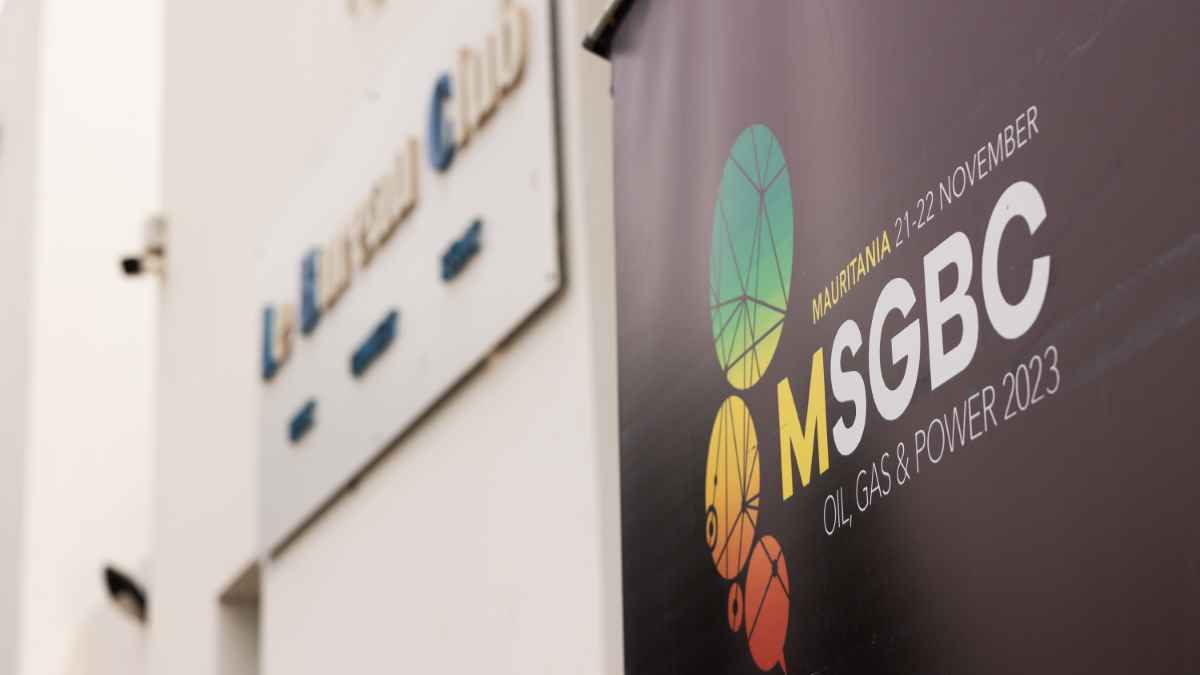The third edition of the MSGBC Oil, Gas & Power conference – which is organized by Energy Capital & Power – features two days of high-level discussions in tandem with a wealth of networking opportunities
NOUAKCHOTT, Mauritania, November 21, 2023/APO Group/ —
The MSGBC region’s premier energy event – MSGBC Oil, Gas & Power 2023 (https://apo-opa.co/3MVbSlj) – officially opened on Tuesday in Nouakchott, the Islamic Republic of Mauritania, with an opening ceremony attended by Mauritanian President Mohamed Ould Cheikh El Ghazouani. The ceremony laid the foundation for two days of dialogue and deals, with industry leaders providing forward-looking remarks about the future of the MSGBC energy market.
“The energy sector in Mauritania has been successful in implementing a policy that will make Mauritania a producer and exporter of natural gas to the rest of the world,” stated Nani O. Chrougha, Minister of Petroleum, Mines and Energy of the Islamic Republic of Mauritania. “Implementing this vision needs a lot of work on different scales, including bringing investment, improving the business environment, and improving skills, along with governance and infrastructure that are in place.”
At a time when global demand is on the rise, MSGBC energy stands to play a much larger role in supplying the world. According to Eng. Mohamed Hamel, Secretary General, Gas Exporting Countries Forum, “Looking ahead, the demand for energy is projected to further increase underpinned by global population growth. Satisfying this growing energy mix while simultaneously reducing emissions requires pragmatic approaches.” He added that GECF “looks to Mauritania with great anticipation as it embarks on enhancing its natural resources for the betterment of its people.”
Going forward, securing financing for the development of these reserves is challenging owing to the global energy transition. Dr. Omar Farouk Ibrahim, Secretary General, African Petroleum Producers Organization (APPO), shared insights into how the organization is supporting African countries finance hydrocarbon projects.
The energy sector in Mauritania has been successful in implementing a policy that will make Mauritania a producer and exporter of natural gas to the rest of the world
He stated that, “At APPO, we are working on ensuring that Africa’s dependence on external sources of funding for oil and gas is put to an end. We are working with Afreximbank to establish an African Energy Bank. Two weeks ago, we approved the timeline and this bank should come online in the first half of next year. We are also working on research centers in Africa.”
To attract foreign capital and strengthen the competitiveness for investment, regional countries enacted a series of regulatory reforms, all of which have been pivotal for getting large-scale projects off the ground. NJ Ayuk, Executive Chairman of the African Energy Chamber, remarked that in Mauritania, “Great fiscals and an enabling environment has opened the door for many new investors as well as gas development, hydrogen development and solar and wind.”
As such, and in collaboration with global investors and regional counterparts, countries including Senegal and Mauritania are developing large-scale projects while The Gambia, Guinea-Bissau and Conakry are introducing licensing rounds and policies aimed at securing investment. Two major developments are coming online next year – the 2.3 million ton per annum (mtpa) Greater Tortue Ahmeyim (GTA) project and the 100,000 barrel per day Sangomar oilfield development – while progress continues at the Sandiara Gas-to-Power facility and the 8 mtpa Mauritanian green hydrogen hub.
According to Gordon Birrell, EVP Production & Operations at bp, “GTA is 90% complete and we are very close to achieving first gas.” Birrell believes that GTA is both ambitious and critical, and that, “GTA is a great energy project for many reasons: it has great scale, great complexity and great significance for Mauritania and the world.”
Similarly, Mark Crandall, Founder and CEO of CWP Global – the company driving Mauritania’s $34 billion green hydrogen development – considers Mauritania to be “a very exciting place to work.” Providing insight into the green hydrogen project, he stated that, “We are going to install thousands of wind turbines and hectares of solar. We will produce over 100 TWh of power – that’s over 100 times what Mauritania is using today. Whatever is not needed here, it will be exported and enrich Mauritania through exports.”
Under the theme, Scaling Energy Opportunities in Africa’s New Frontiers, the conference represents the only energy forum focused on the entire MSGBC energy sector and its value chain. With the opening remarks, the 2023 edition of the conference officially kicked off.
Distributed by APO Group on behalf of Energy Capital & Power.
